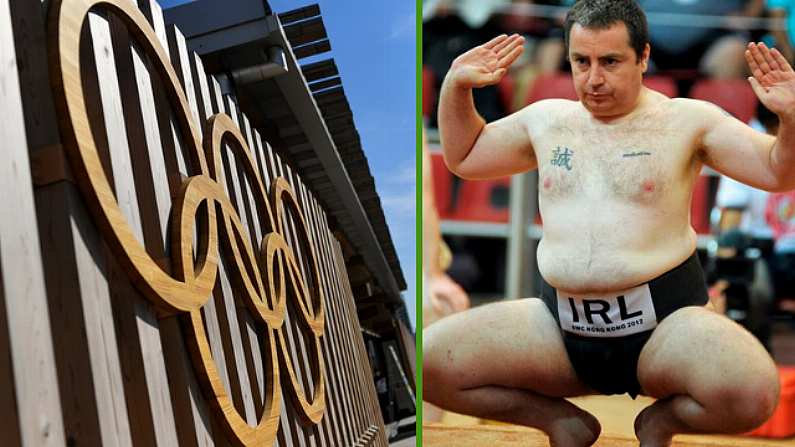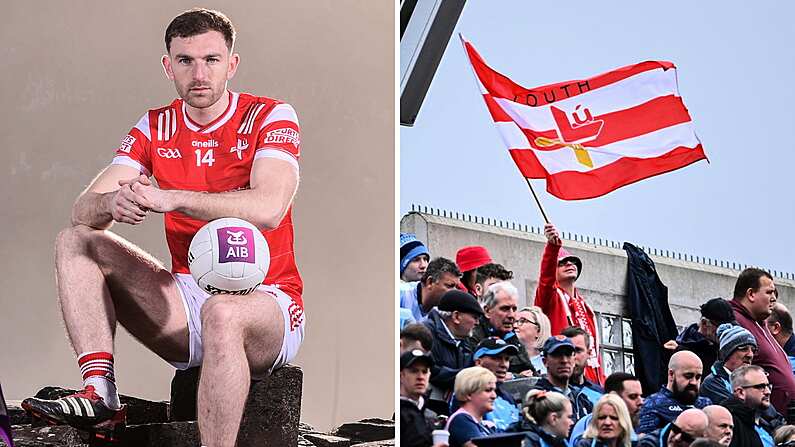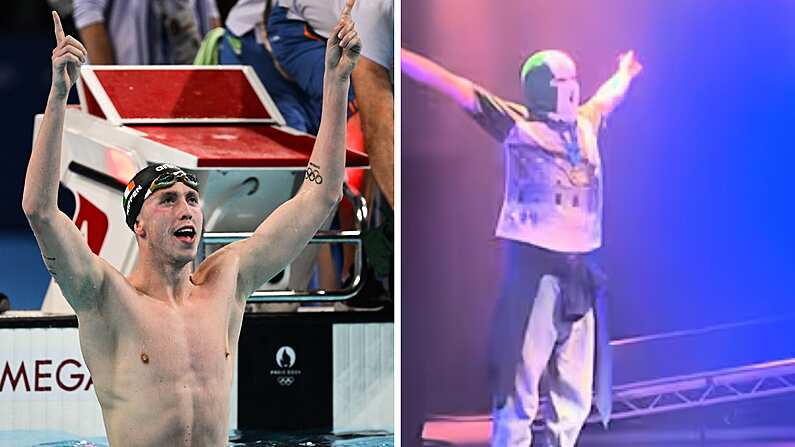The Tokyo Olympics are officially underway. Sadly, they exist under a shroud of covid anxiety. It's a massive pity because Tokyo would have staged the greatest Olympics ever. Instead, the Olympics will take place without spectators with the vast majority of Japanese people preferring that the Games don't go on. The Euros proved the healing power of sport in front of spectators (until the England fans got rowdy.) The Olympics (as well as the Lions tour) reveal the ugly commercial engine that drives world sport.
To get a sense of the mood in Tokyo, we spoke to John Gunning. The Castlerea man has lived a fascinating life in Japan over the past 20 or so years, having trained as a sumo wrestler while developing a career as a TV commentator and journalist. We chatted to Gunning about the mood in Japan on the eve of the Olympics and the Olympics that might have been were it not for covid.
Balls: What's the best word to describe the mood in Japan towards these Olympics? Ambivalence?
JG: Ambivalence would be a bit of an understatement. If you look at the polls taken over the past few months, you have between 75 -85% of people saying it should be cancelled or postponed for a year. People are just worried. It's fear and worry that the Olympics is going to cause chaos, medically, in Japan.
Balls: Can you talk about Japan's relationship with the Olympics movement?
JG: Japan is a hugely pro-Olympics country. It's a country where nationalism has a troubled history. One of the first things I noticed when I came here 20 years ago is that you don't see the national flag anywhere. Even in Ireland you see the tricolour all over the place. The Olympics was that one occasion where people could celebrate the country and Japanese-ness. It's doubly tragic: this Games they've waited so, so long for have only brought fear and worry.
Balls: It's especially sad because Japan's hosting of the 1964 Summer Olympics was such a success.
JG: That was Japan's re-entering of the world community. It had a huge effect on the country, in terms of what was built and created. Infrastructure. The bullet train system was created for it, so were highways. It had a huge physical effect on the country, and emotionally as well. People were really looking forward to the return of the Olympics.
Balls: Can you talk a bit about Japan's passion for sport that you've experienced through sumo wrestling? A lot of people from Ireland were blown away by the 2002 World Cup and the last Rugby World Cup.
JG: Any of the fans who came for the 2002 World Cup or the 2019 Rugby World Cup, almost to a person, they would have said it was the single greatest experience they had had at a sporting event. It would have been the same for the Olympics. Big sporting events in Japan run so smoothly. People not speaking the language is never an issue. There's an army of volunteers. Everyone is so welcoming. The safety of the country, the breadth and depth of the food. Tokyo is the cuisine capital of the world. What people will miss is the immersive experience, of being in a culture that one part similar to Western countries, but as soon as you go beneath the skin, it's a completely different world.















